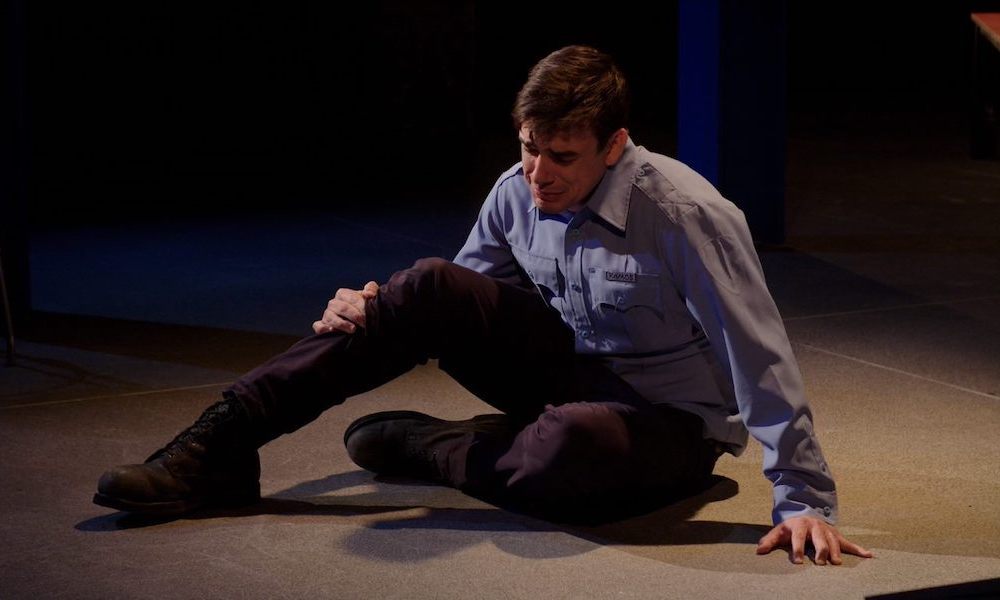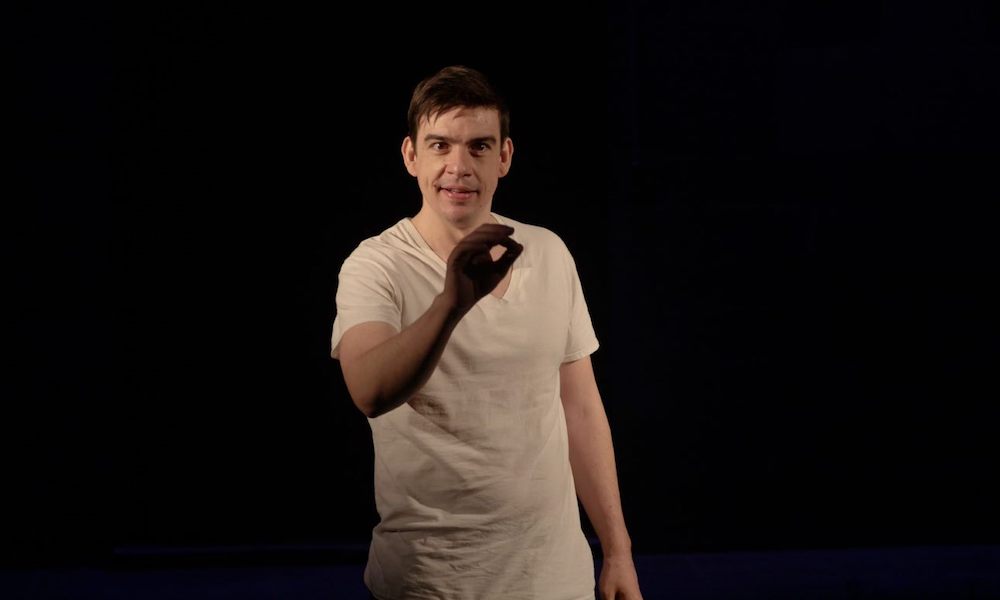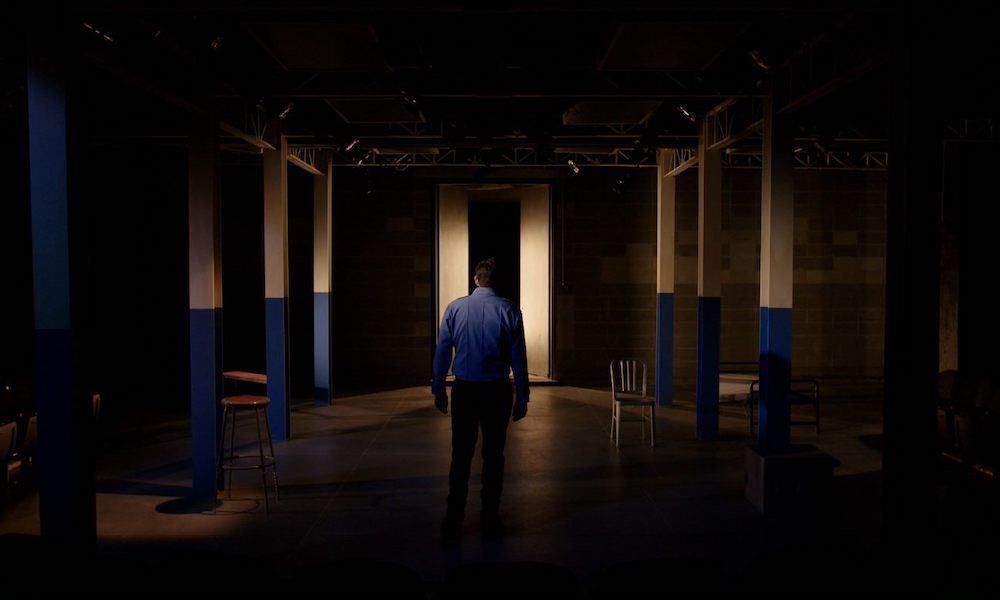If you have to be separated from your parents after a dangerous, strenuous journey, placed under arrest in a country you don’t know, and ordered around in a language you don’t understand, it might bring you some hope to find a man like Martín will be guarding you, watching you: someone who speaks your language, someone who is kind and, like you, tender. It only makes sense that he should be here in Casa Padre — Father’s House. Casa Padre, however, is a tender age facility — a detention center for children of migrant families attempting to enter the United States illegally. George Brant’s one-man play Tender Age lays out for us in simple, inescapable, and lyrical terms what the American policy of separating migrant children from their parents and detaining those same children means, both for the families upon whom the policy is inflicted and for the moral state of us Americans.

Martín (Bobby Moreno) applies for a job at the former Walmart that has now been converted into a detention facility. When he first arrives, the building is empty of everything except the furniture awaiting its new occupants. It is only after he has been hired and his charges begin arriving, each of them holding a red, white or blue balloon, that Martin realizes that all of the people who will be kept in this detention center are children, many of whom are about the same age as his own two daughters. This is an already inhumane situation that is made more inhumane by some of the rules that are imposed on the children, rules such as: no contact — neither with their guards nor among themselves. On the first night, after lights are turned out, there is silence. That silence is followed by sobbing. Over the weeks, one by one, overtaken by what Martín starts to refer to as “spores of despair,” the children fall into an unshakeable sleep and have to be fed by tube. Nurses have to turn them in their beds to alleviate bedsores.

We see a city and a culture of a people through the eyes of Martin as he goes about attempting to do what he understands he must do to provide for himself and his family. We see through him the rage, disgust, sorrow, and disappointment — and the divide of opinion — that exists among his various communities about how to confront this situation of being held as pawns between governments.
Playwright Brant does not have the actor portraying Martín impersonate the other people in his life. Instead, he has the actor react to each person that Martín is seeing. We watch the empty space and we watch the actor’s body and face in response to what he sees in that space. This is an ordinary enough technique. But director Henry Godinez, actor Moreno, and the production crew take advantage of the script’s lyricism to employ that technique with surgical precision and minimal, essential gesture that is both natural and evocative. Thus, the children become simultaneously present and ghostly. The detention facility itself is simultaneously present and ghostly. And this simultaneous presence and invisibility echoes how the entire immigration policy the United States produced under Trump is both painfully real to immigrants and ghostly invisible to U.S.-ers ourselves.
The theme of knowing and not knowing has a prominent place in the script. How much do I an American know about what is happening to these children in my name? There is much that Martín himself, much to his wife’s chagrin, does not know and continues to learn as his time with his charges goes on. At some point, Martín realizes that many of the young girls who arrive in the facility were raped during the journey to the U.S. He is told by one of his charges that before the journey the girls are prepared: “All the girls, they know. They know what’s going to happen.”
Many of us U.S.-ers have heard about this policy and have been appropriately appalled. But unless we have family involved or unless this situation is kept in our attention by some media coverage, it is easy forget or not to know what is going on. It is reminiscent of the claim ordinary German citizens from the Nazi era would make when, after WWII, they were asked why they had allowed or gone along with what their government did. Often their response was “We didn’t know it was happening. We didn’t know all those things were going on.”

As an employee of Casa Padre, Martín is enjoined from talking about his work to anyone, even his wife. So, when each of his daughters offers to send one of their dolls to the incarcerated children, he asks, Who told you? How do you know about the children? His girls respond, “Everybody knows about los niños, Papa.”
Running Time: Approximately 90 minutes
Tender Age streams on demand at studiotheatre.org July 2 through 25, 2021. Single tickets ($37 plus service fees) are available online or by calling 202.332.3300.
Tender Age by George Brant
Martín: Bobby Moreno
Director: Henry Godinez
Director of Video: Wes Culwell
Lighting Designer: Alberto Segarra
Sound Designer: Victoria Delorio
Cultural Consultant: Jacqueline Guillen
Dramaturg: Adrien-Alice Hansel
Allie Roy: Production Stage Manager
Assistant Director: Annabel Heacock
Production Assistant: Lucién Reubens
SEE ALSO: Timely new play from Studio Theatre to confront U.S. immigration crisis




